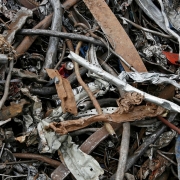Europe’s Recyclers Applaud Milestone PPWR Deal
The COREPER deal on the Packaging and Packaging Waste Regulation (PPWR) marks a significant milestone for the European recycling industry and circular value chains. Enhancing packaging circularity is imperative from both environmental and industrial standpoints and this signed deal marks a significant step forward.
The deal reached is likely the best outcome, given the trade issues that caused delays and the fact that it was only reached after any condition of origin for plastics accounting for recycled content was removed. For Olivier François, President of EuRIC, “setting equivalent conditions that guarantee that imported recycled plastics meet equivalent standards to those set in the EU is vital for ensuring European industrial sovereignty and competitiveness, while delivering climate objectives and fostering a truly circular economy.”
These measures not only comply with WTO rules but also ensure consistency. It is necessary for the EU to impose conditions on imports of recycled plastics used in packaging products placed on the EU market, just as it bans exports of plastic waste in another piece of legislation.
However, certain challenges remain. Granting Member-States the freedom to prioritise access to recycled plastics – a measure that EuRIC has consistently opposed – to meet PPWR targets risks disrupting the well-functioning internal market. Instead, the focus should be on recyclability requirements and improving collection rates, which are the best tools to enhance packaging circularity and close the loop. “Ambitious recycled content targets are crucial for driving investments in Europe and building the industry capacity necessary to meet them. This practically means both more circular packaging products but also more green industrial jobs within Europe,” added the EuRIC President.
EuRIC looks forward to closely collaborating with EU institutions on the various implementing and delegated acts outlined in the Regulation to ensure the PPWR delivers on its objectives and effectively bridges environmental protection with green industrial growth in Europe.
Source: ESWET (Brussels, March 15, 2024)







